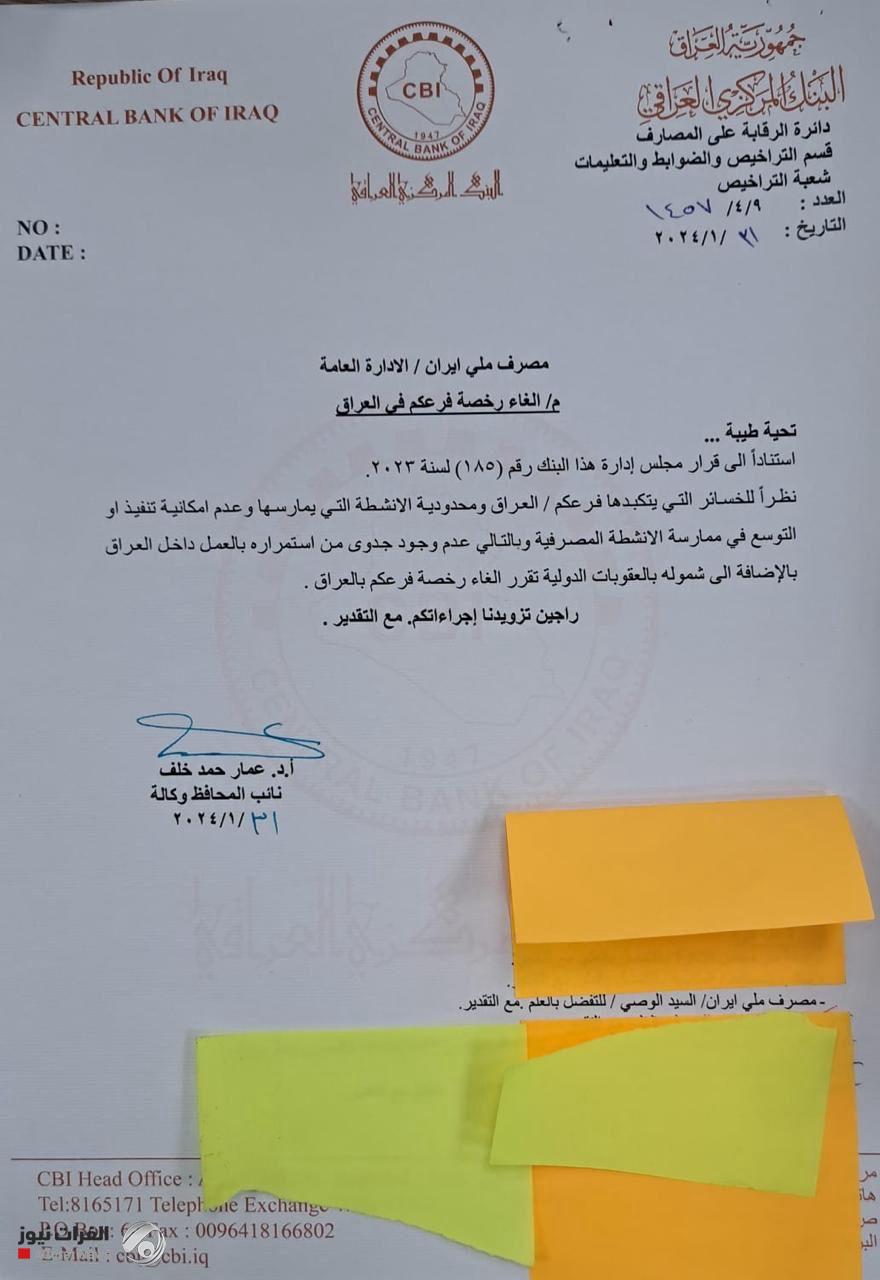“THEY TOLD EDDIE ON THE 29TH OF JANUARY, A CAMPAIGN WAS BBEING LAUNCHED TO EDUCATE THE IRAQI CITIZENS ON THEIR MONETARY REFORM… THIS IS ANOTHER EXAMPLE OF IT”……………..F26
Empowering the Iraqi economy: growth through strategic investments and banking excellence
1/30/2024 Baghdad
Cihan University – Dohuk held the “Third Annual Economic Forum”, in the presence of Zirvan Abdul Mohsen Asaad, President of the University, and a number of experts, economists, bank managers and academic figures.
The forum was held in the Research Center hall, under the slogan “Empowering the Iraqi Economy: Growth through Strategic Investments and Banking Excellence.”
The first session began at eleven o’clock in the afternoon and lasted for two hours, and was moderated by Ahmed Al-Saffar, an academic and former member of the Iraqi parliament.
The first speaker was Abdul Hussein Al-Anbaki, head of the economic advisory office of the Iraqi Prime Minister, who began his speech about the challenges facing development in Iraq.
Al-Anbaki stressed “the necessity of addressing structural imbalances in the economy, pointing out the failure to achieve the goals associated with Article (25), which aims to reform the economy by diversifying sources and supporting the private sector.”
Al-Anbaki referred to the history of the Reconstruction Council and the impact of changes in its allocations on its effectiveness, proposing the establishment of an independent Popular Development Fund to finance government and private projects with soft loans.
He concluded with recommendations for administrative reform before economic reform, reconsidering the management of oil revenues, adjusting the exchange rate of the Iraqi dinar, and canceling the auction. currency, and the legislation of the public-private partnership law.”
The second speaker was Haval Siddiq Ismail, representative of the Minister of Investment in the Kurdistan Region, and Director General of the Investment Authority in Dohuk, who “presented a comprehensive analysis of the investment situation in the region. He provided details about investment projects and successful sectors in attracting investment, with a focus on challenges, opportunities, and policies.”
The government encourages investors. Dr. Haval also highlighted the regulatory and bureaucratic obstacles, and provided a realistic assessment of the difficulties and potential opportunities. Finally, he provided details about the potential opportunities and government policies followed by the Kurdistan Regional Government to facilitate a prosperous investment environment.
The second session started at one o’clock in the afternoon and lasted for two hours, and was moderated by Nawar Al-Saadi, Professor of International Economics and Director of the Research Center at Cihan University.
The second session began with a speech by Muhammad Al-Najjar, Advisor to the Iraqi Prime Minister for Investment, and Executive Director of the Iraq Fund for Development.
In his speech, Al-Najjar shed light on the “Iraq Fund for Development, which was newly established as an independent body reporting to the Prime Minister. Al-Najjar spoke about the Fund’s role in promoting change and diversifying the Iraqi economy. The Fund aims to attract local and international investors to participate in the implementation of various projects.”
One prominent example discussed by Al-Najjar is “the ongoing project to build 1,950 schools across Iraq. These projects will be delivered to private sector investors and the Iraqi investor exclusively, with guarantees such as the return of capital after five years. This approach does not encourage local investment.” “Not only does it ensure the effective participation of the private sector in the reconstruction process in Iraq.”
The fund’s strategy focuses on “different stages of investors, starting from local investors to foreign investors. It emphasizes the involvement of local stakeholders to enhance local ownership in development projects, with an emphasis on handing over projects to the private sector to guarantee a return on capital after a certain period.”
Regarding the second speaker, Ahmed Al-Tabqajli, Chief Strategist at the Iraq Fund at the Asian Development Fund,
Al-Tabjali talked about “strategies for attracting investments to the Iraqi Stock Exchange. The market was characterized by strong performance, as the AFC Fund rose by 110.4% in 2023, making it one of the best funds in the world.” (ONLY BECAUSE OF THE MONETARY REFORM & BANKING RESTRUCTURE OF IRAQ -F26)
Al-Tabjali explained this performance “by the development of new procedures by the Central Bank of Iraq, which led to accelerating reliance on banking services and promoting growth in the non-oil economy. The market was also affected by the relative stability of the country, which created a more stable economic environment and attracted the interest of international investors.”
Al-Tabqajli also pointed to the market’s role in supporting the development of an efficient economy by providing capital to companies, and believes that the development of the Iraqi Stock Exchange contributes to enhancing the gross domestic product and economic stability in the region.
Then, many interactive questions, discussions, and inputs were posed by the attendees, and in conclusion, the forum came out with a set of proposals and recommendations that will be submitted to the relevant authorities. LINK
